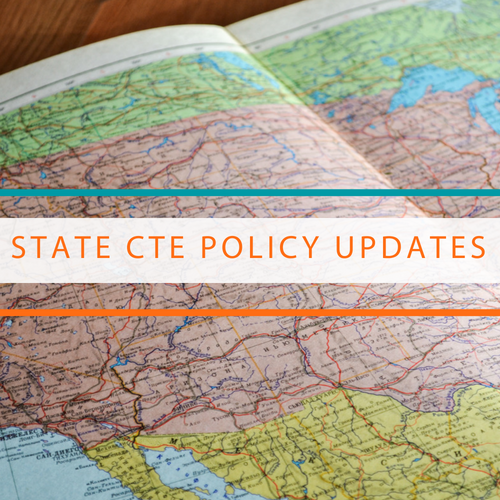 State education agencies, legislators and educators faced significant challenges from the coronavirus pandemic, including adapting to remote and hybrid delivery of hands-on learning, and responding to local and national skilled labor shortages. The number of state-level CTE policies enacted that affect Career Technical Education (CTE) fell to the lowest number in 2020 since Advance CTE and the Association for Career and Technical Education (ACTE) began publishing these annual Year in Review reports.
State education agencies, legislators and educators faced significant challenges from the coronavirus pandemic, including adapting to remote and hybrid delivery of hands-on learning, and responding to local and national skilled labor shortages. The number of state-level CTE policies enacted that affect Career Technical Education (CTE) fell to the lowest number in 2020 since Advance CTE and the Association for Career and Technical Education (ACTE) began publishing these annual Year in Review reports.
However, with a new commitment to upskilling and reskilling American learners and a CTE without limits, 41 states enacted 138 policies impacting CTE and career readiness in 2021. Advance CTE and ACTE have witnessed the return of pre-pandemic numbers in state policy actions in 2021 with policies affecting the secondary, postsecondary, adult and/or workforce systems, and including legislation, executive orders, and budget provisions that significantly changed funding.
Each year, Advance CTE and ACTE publish a yearly state policy tracker and categorize each state policy action by topic. In 2021, the top five topics that state policy most frequently addressed were:
- Funding;
- Access and equity;
- Data, reporting and/or accountability;
- Industry partnerships and work-based learning; and
- Industry-recognized credentials.
Industry-recognized Credentials
Policies that address the attainment of credentials recognized by industry, including micro-credentials, such as badges, and educational Degrees are categorized by this topic. Nineteen states enacted 33 policies affecting industry-recognized credentials. Policies in this area are designed to increase or incentivize the attainment of certifications, credentials or degrees aligned with labor market information or industry need. Below are a few state policy actions from this category:
- Idaho established a workforce readiness and CTE high school diploma. The law outlines the requirements for learners to earn the diploma, such as passing technical skills assessments and workplace readiness assessments, demonstrating CTE competency standards, and earning a badge or an industry-recognized credential.
- Louisiana created the M.J. Foster Promise Program, which provides financial assistance of up to $3,200/year to a learner enrolling in a two-year or shorter postsecondary program aligned to a state-recognized in-demand, high-wage occupational field and leading to an industry-recognized credential.
- Texas established the Texas Reskilling and Upskilling through Education (TRUE) program. This program awards grants to an eligible agency, such as a junior college, technical institute or local chamber of commerce, to create, redesign or expand training programs that lead to industry-recognized credentials and create pathways to employment for learners in accordance with local workforce needs.
State Policies Impacting CTE: 2021 Year in Review marks the ninth annual review of CTE and career readiness policies from across the United States conducted by Advance CTE and ACTE. This report does not describe every policy enacted within each state but instead focuses on national policy trends.
View the full report and 2021 state policy tracker here.
Dan Hinderliter, Senior Policy Associate


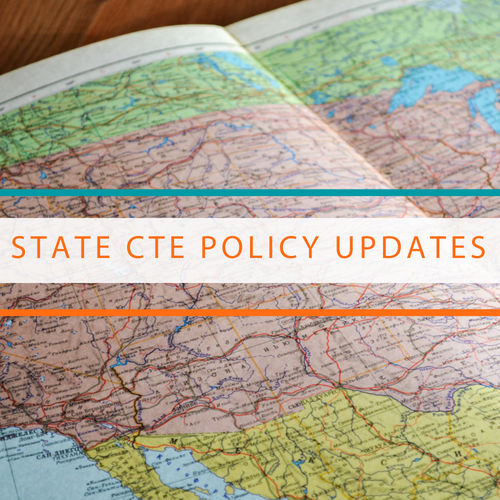 State education agencies, legislators and educators faced significant challenges from
State education agencies, legislators and educators faced significant challenges from 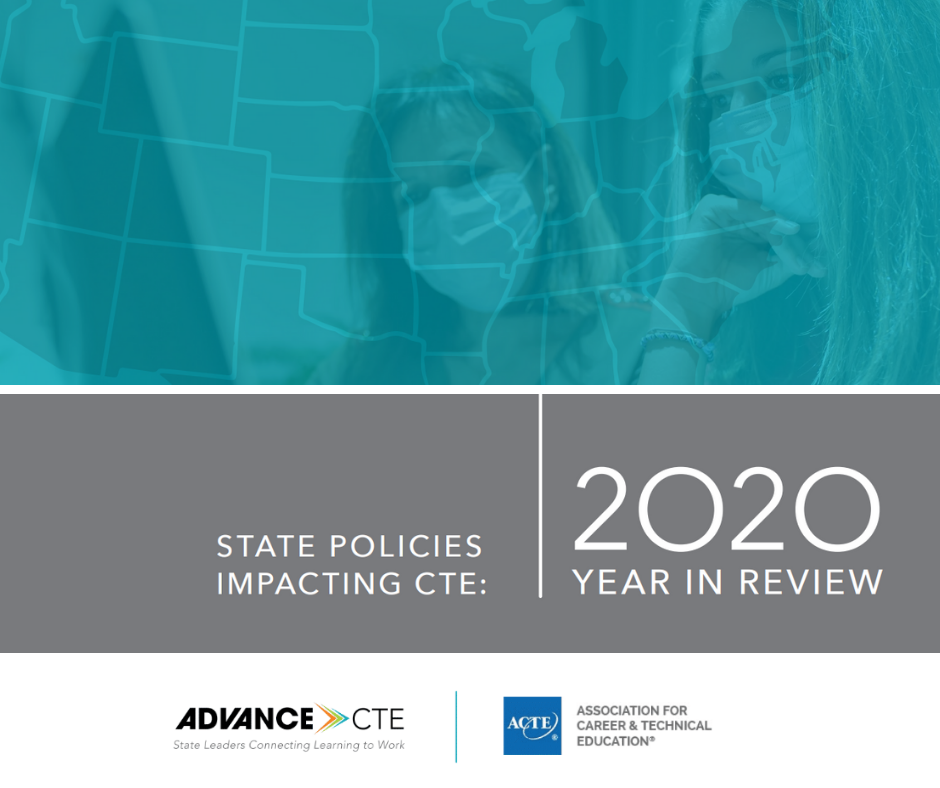 On the state and federal level, COVID-19 (coronavirus) fundamentally changed the conversation about education, significantly disrupting and refocusing state legislatures. Despite this, Career Technical Education (CTE) adapted to the challenges brought about by the coronavirus, continuing to deliver high-quality programming nationwide across all learner levels despite significant disruptions to education delivery. Because the pandemic was on the forefront of federal, state and local governments’ agendas, fewer policies and budget provisions for CTE were enacted than in previous years; in calendar year 2020, 31 states enacted or passed 67 policy actions related to CTE and career readiness.
On the state and federal level, COVID-19 (coronavirus) fundamentally changed the conversation about education, significantly disrupting and refocusing state legislatures. Despite this, Career Technical Education (CTE) adapted to the challenges brought about by the coronavirus, continuing to deliver high-quality programming nationwide across all learner levels despite significant disruptions to education delivery. Because the pandemic was on the forefront of federal, state and local governments’ agendas, fewer policies and budget provisions for CTE were enacted than in previous years; in calendar year 2020, 31 states enacted or passed 67 policy actions related to CTE and career readiness.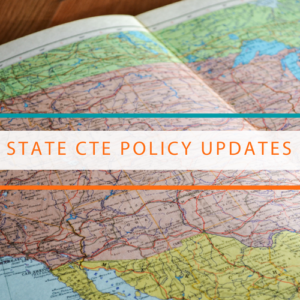 As the legislative sessions move forward, states have passed laws to examine and increase work-based learning opportunities for learners.
As the legislative sessions move forward, states have passed laws to examine and increase work-based learning opportunities for learners.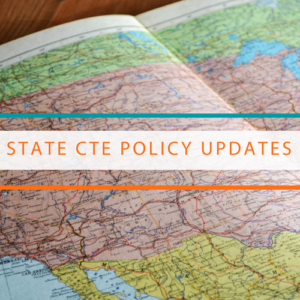 Many governors leveraged their State of the State Addresses to address CTE funding. In Maine,
Many governors leveraged their State of the State Addresses to address CTE funding. In Maine,  Some states are exploring how to leverage apprenticeships to award college credit to learners. For instance, the Colorado legislature passed
Some states are exploring how to leverage apprenticeships to award college credit to learners. For instance, the Colorado legislature passed